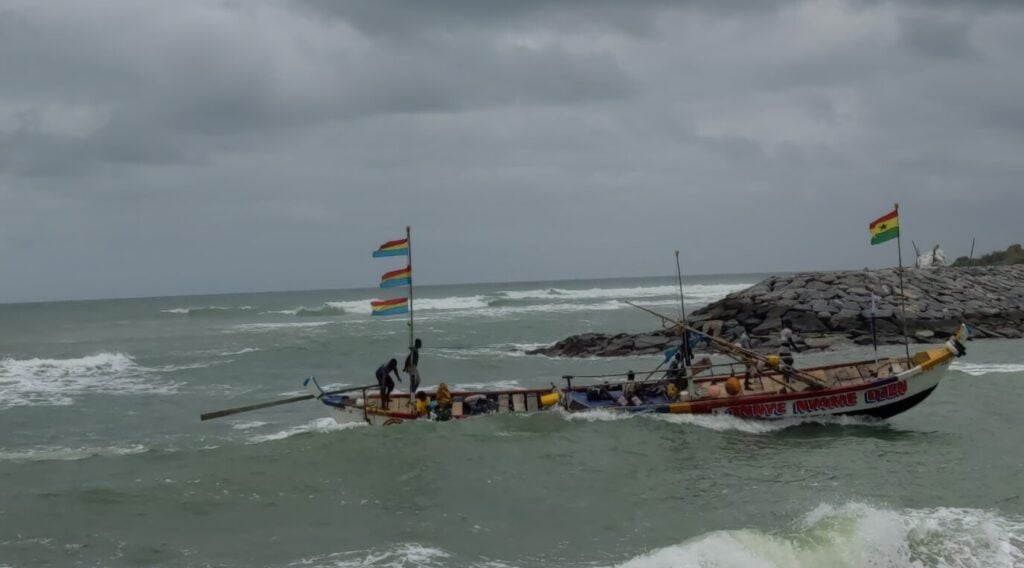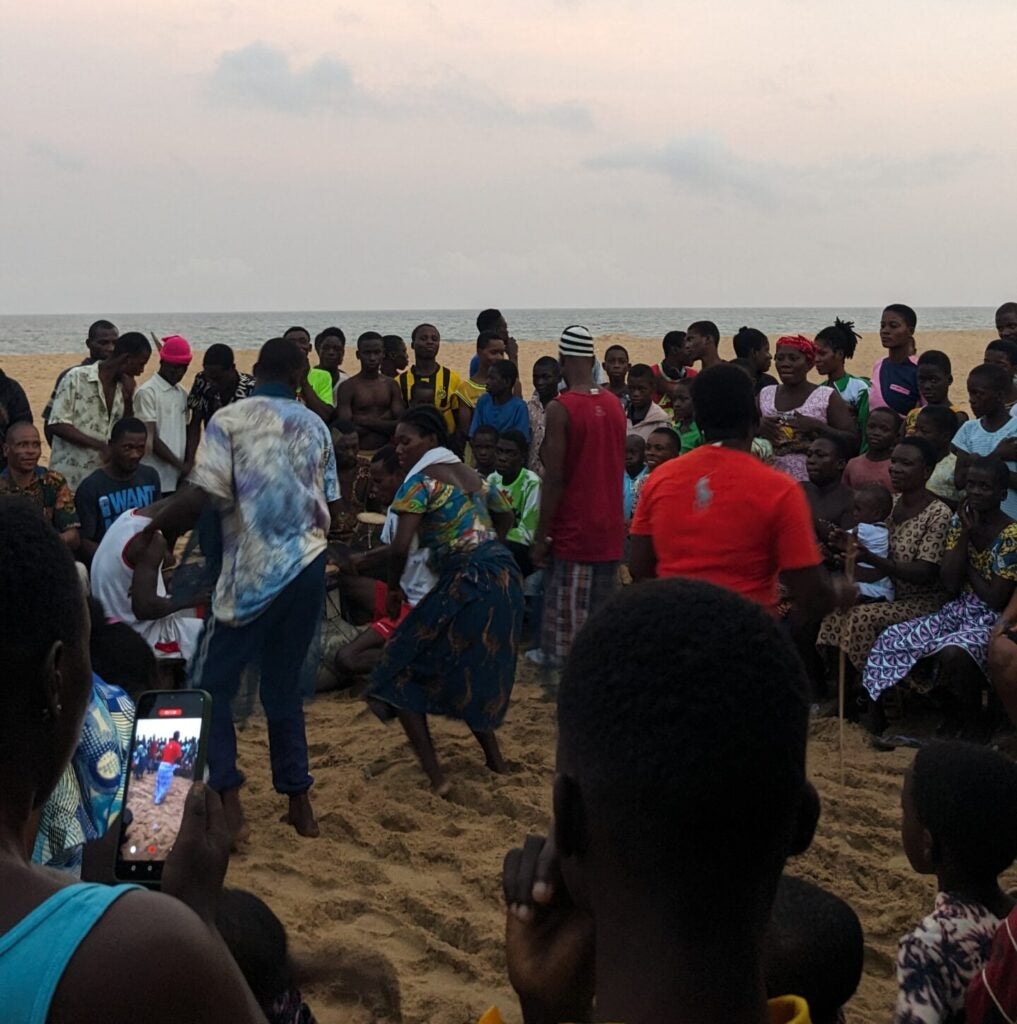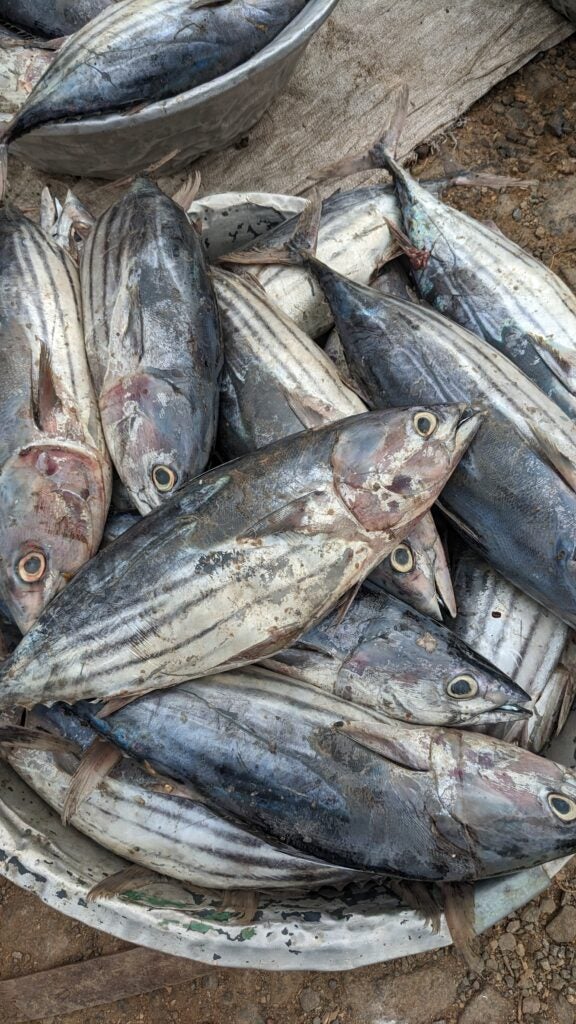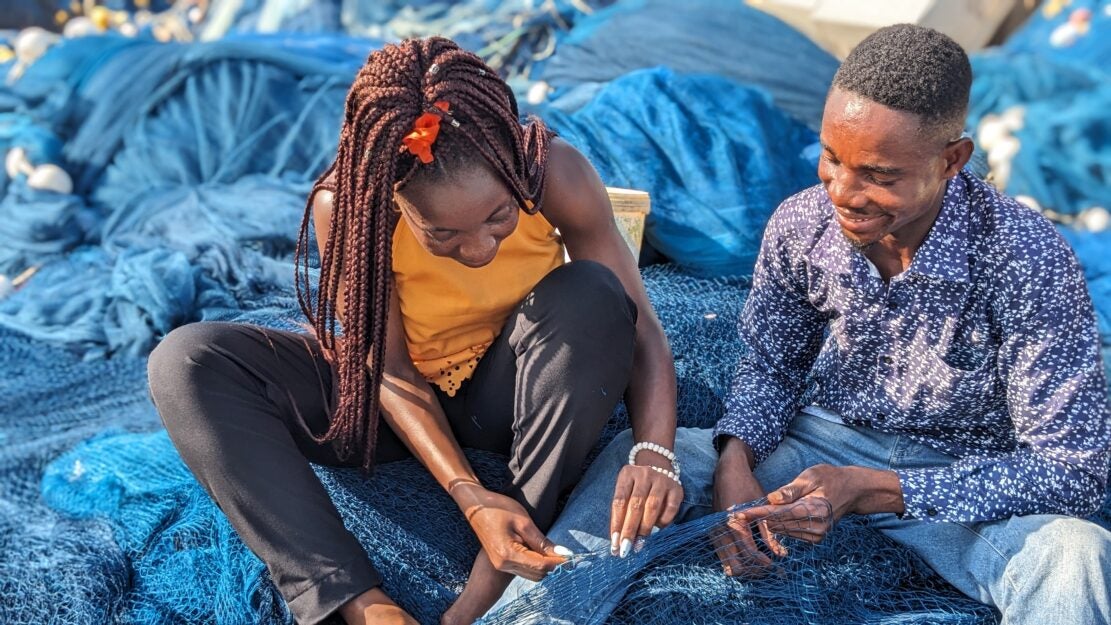Idongesit Sampson, MPH ’24 (left) practicing net crafting with a fisherman in Mumford, Central Region, Ghana
By Idongesit Sampson
Rose Service Learning Fellow
MPH Candidate, Health and Social Behavior
The Republic of Ghana, often called the “Gateway to Africa,” is one of the many breathtaking African countries nestled on the continent’s west coast. It is renowned for its stunning landscapes and vibrant coastline, which boasts stunning beaches and vibrant fishing communities. Ghana’s waters are not only a source of breathtaking scenery but also play an essential role in supporting the nation’s economy as it teems with diverse marine life that supports its fishing industry. However, this vital sector is currently threatened by a number of factors, including overharvesting, habitat loss, pollution from unsustainable fishing practices, and environmental changes, which threaten both the livelihoods of fishers and food security across coastal communities and the country at large.
Last summer, I had the privilege of participating in a project with the Environmental Defense Fund and Tetra Tech in Ghana. The Environmental Defense Fund is a leading environmental advocacy group that uses science, economics, and law to address issues like global warming, ecosystem restoration, oceans, and human health. Tetra Tech, through its Ghana Fisheries Recovery Activity (GFRA), a USAID-funded activity, collaborates with the Ghana Fisheries Commission, the Ministry of Fisheries and Aquaculture Development, and the Ghana Fishermen Council to support the recovery of Ghana’s small pelagic fisheries sector. The project was supervised by Professor Christopher Golden whose work focuses on ensuring local people’s dependence on natural resources for obtaining adequate health.

Supported by the Rose Service Learning Fellowship, I had the opportunity to travel across Ghana’s Volta, Central, and Western regions, engaging with fishers, fish processors and traders, and fisheries managers to understand the fisheries sector’s evolving context. Through these visits, I learned that many fishers and traders have had to change their target species due to scarcity/reduced quantities, increased prices of previously targeted species, illegal and industrial fishing, and fish migration to deeper waters. The decline in populations of species such as Chub mackerel, Congo dentex, and Angola dentex has been particularly concerning. Fishers also spoke of traveling farther to find fish, hinting at potential overfishing or species migrations. These insights stress the urgent need for sustainable management practices to safeguard Ghana’s marine resources and ensure the food and economic security of its coastal communities.

Despite these challenges, Ghana has taken positive steps, such as implementing a four-week closed-fishing season, to allow marine life to recover. Some of the highlights of my visit were witnessing the vibrant dance rehearsals by members of the coastal communities in preparation for the season’s opening ceremony, the hospitality of the people I interacted with, and the incredible cuisine. I experienced firsthand the pride of the communities in their coastal heritage, which not only enriched my journey but also underscored the resilience and pride of Ghana’s coastal communities in preserving their way of life.

The insights and recommendations from my field experience, gathered through consultation with local communities and stakeholders, are invaluable in shaping interventions and policy design for the country’s fisheries management practices. These findings will be compiled into a comprehensive report which will serve as a policy advisory document and the final deliverable for my host organizations –EDF and Tetra Tech. Sustainable fisheries management is not just a priority for Ghana but a pressing global imperative. As we confront these challenges, collaborative efforts and innovative solutions will be essential to preserving our oceans and ensuring a stable and secure food supply for future generations. My time in Ghana not only deepened my understanding of some of the many threats to food security but also highlighted the urgent need for action in the face of the evolving climate crisis. This experience reaffirmed my commitment to climate action, and I am enthusiastic about continuing to contribute to efforts in this important space post-graduation.

You must be logged in to post a comment.